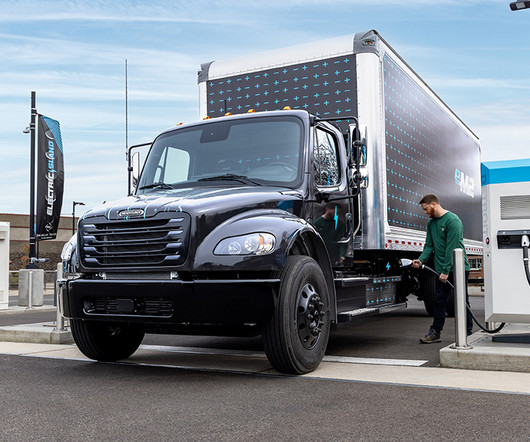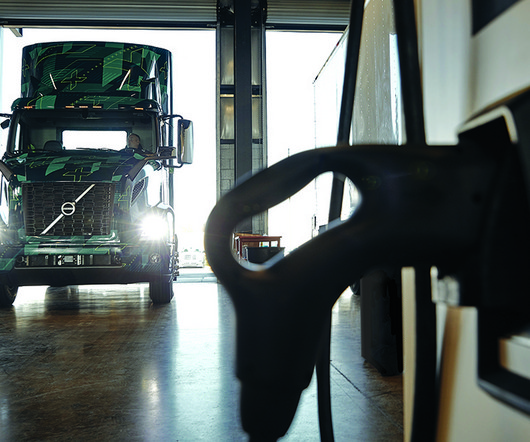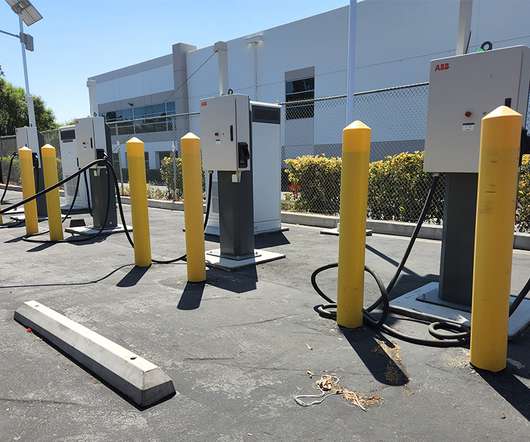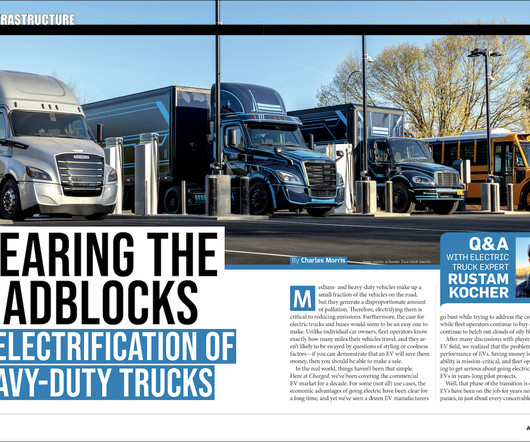The heavy-duty electric truck market could break out in 2024 – Charged EVs
Baua Electric
JANUARY 16, 2024
Electrifying heavy-duty trucks is essential if we’re to fight climate change and air pollution, but the pace of the transition has been painfully slow—many, many pilots, but few truly large-scale orders. As Alan Adler writes in a recent FreightWaves article, 2023 was not the long-awaited Year of the Electric Truck.











Let's personalize your content